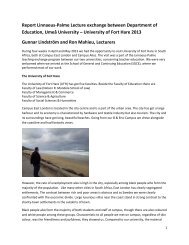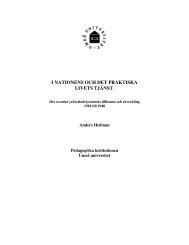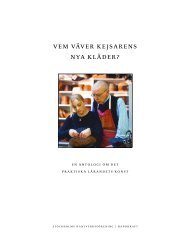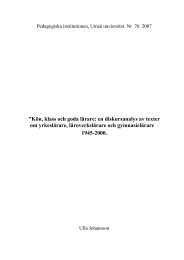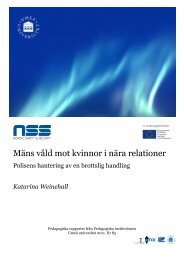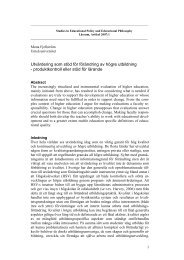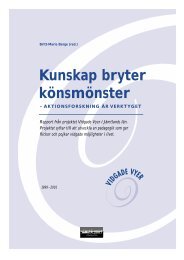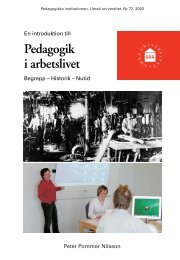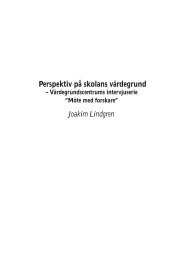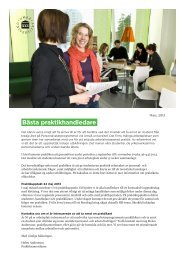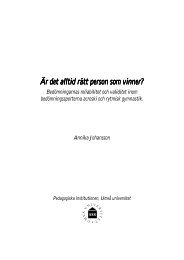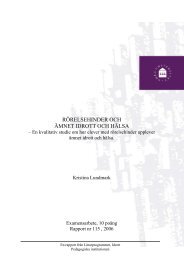IDENTITETSSKAPANDE I STUDENTFÖRENINGEN ULRIKA ... - DiVA
IDENTITETSSKAPANDE I STUDENTFÖRENINGEN ULRIKA ... - DiVA
IDENTITETSSKAPANDE I STUDENTFÖRENINGEN ULRIKA ... - DiVA
You also want an ePaper? Increase the reach of your titles
YUMPU automatically turns print PDFs into web optimized ePapers that Google loves.
Background and Overall Aim<br />
SUMMARY<br />
S U M M A R Y<br />
Students have always organised themselves in various types of societies, and<br />
thereby also distinguished themselves vis-à-vis other students or other groups in<br />
society. Through this and the social practices in the societies, the members<br />
have constructed particular marked and marking identities. The present study<br />
deals with some students’ societies at a present-day university and the process of<br />
identity construction going on there.<br />
The radical transformation of higher education during the last decades constitutes<br />
the background of the study. In the 19th century the educational system<br />
contributed to upholding gender and class distinctions and hence also the subordination<br />
of women and the working classes. In the 20th century, however,<br />
many reforms were made for the purpose of widening the recruitment to universities<br />
with respect to both gender and class. Education has also been seen as a<br />
tool for increasing equality and gender equity in society at large. What happens<br />
in lecture halls and seminar rooms often seems, however, to be governed by<br />
quite other principles: Researchers have shown that many different, and sometimes<br />
very subtle, mechanisms contribute to maintaining unequal class and<br />
gender power relations. One research question concerns the impact of social<br />
class and gender on other activities in student life.<br />
The concept of ‘the knowledge and information society’ is frequently used to<br />
describe today’s society, and great importance is attached to higher education.<br />
The demands on formal education have also been raised for many occupational<br />
groups; at the same the labour market of many occupations is in practice diminishing,<br />
and therefore education may be the only alternative to unemployment.<br />
These changes are reflected for example in concepts such as ‘life-long learning’<br />
and various forms of distance education. Never before have so many people<br />
taken up higher education, and today we have generally started talking about<br />
mass universities.<br />
Since higher education is no longer reserved for a few people, its character of<br />
elite education has undeniably been toned down. This has in turn led to the<br />
value of academic degrees generally being not quite what it was at the beginning<br />
of the last century. Today many academics are for example unemployed.<br />
In order to positively distinguish oneself on the labour market it may be impor-<br />
165



